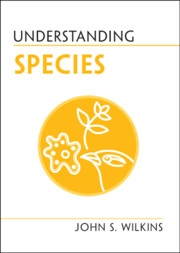Book contents
- Understanding Species
- Understanding Life
- Understanding Species
- Copyright page
- Reviews
- Contents
- Foreword
- Preface
- A Note
- 1 How Species Matter
- 2 Classifying Species
- 3 Making Species
- 4 A Short History of Species and Kinds
- 5 Philosophy and Species
- 6 Finding Species
- 7 Extinction, or How Species Are Lost
- 8 The Value of Species
- 9 Replacing ‘Species’
- 10 Concluding Remarks
- Summary of Common Misunderstandings
- References and Further Reading
- Figure Credits
- Index
7 - Extinction, or How Species Are Lost
Published online by Cambridge University Press: 06 April 2023
- Understanding Species
- Understanding Life
- Understanding Species
- Copyright page
- Reviews
- Contents
- Foreword
- Preface
- A Note
- 1 How Species Matter
- 2 Classifying Species
- 3 Making Species
- 4 A Short History of Species and Kinds
- 5 Philosophy and Species
- 6 Finding Species
- 7 Extinction, or How Species Are Lost
- 8 The Value of Species
- 9 Replacing ‘Species’
- 10 Concluding Remarks
- Summary of Common Misunderstandings
- References and Further Reading
- Figure Credits
- Index
Summary
One of the things that is often said about the frankly catastrophic loss of biodiversity in the world today is that extinction is a natural process of the living world, and this is quite true. Extinction does not naturally occur at a constant rate, however. It ranges from near instantaneous (as when a 12-km-wide rock hits the planet, causing a Very Bad Day for most living things) to a slow background rate of extinction of species that have been reduced to a relic of past distributions and population numbers. So, when those who do not think we are in a catastrophic situation say, ‘Extinction is natural’, point out to them that the present scale of extinction is in global terms worse than a 12-km bolide, at least in geological terms, for the geological record doesn’t distinguish easily between a one-day catastrophe and a four-century one. Both are ‘sudden’ events in Deep Time. As E. O. Wilson wrote, in his book The Diversity of Life (1992)
Keywords
Information
- Type
- Chapter
- Information
- Understanding Species , pp. 96 - 112Publisher: Cambridge University PressPrint publication year: 2023
